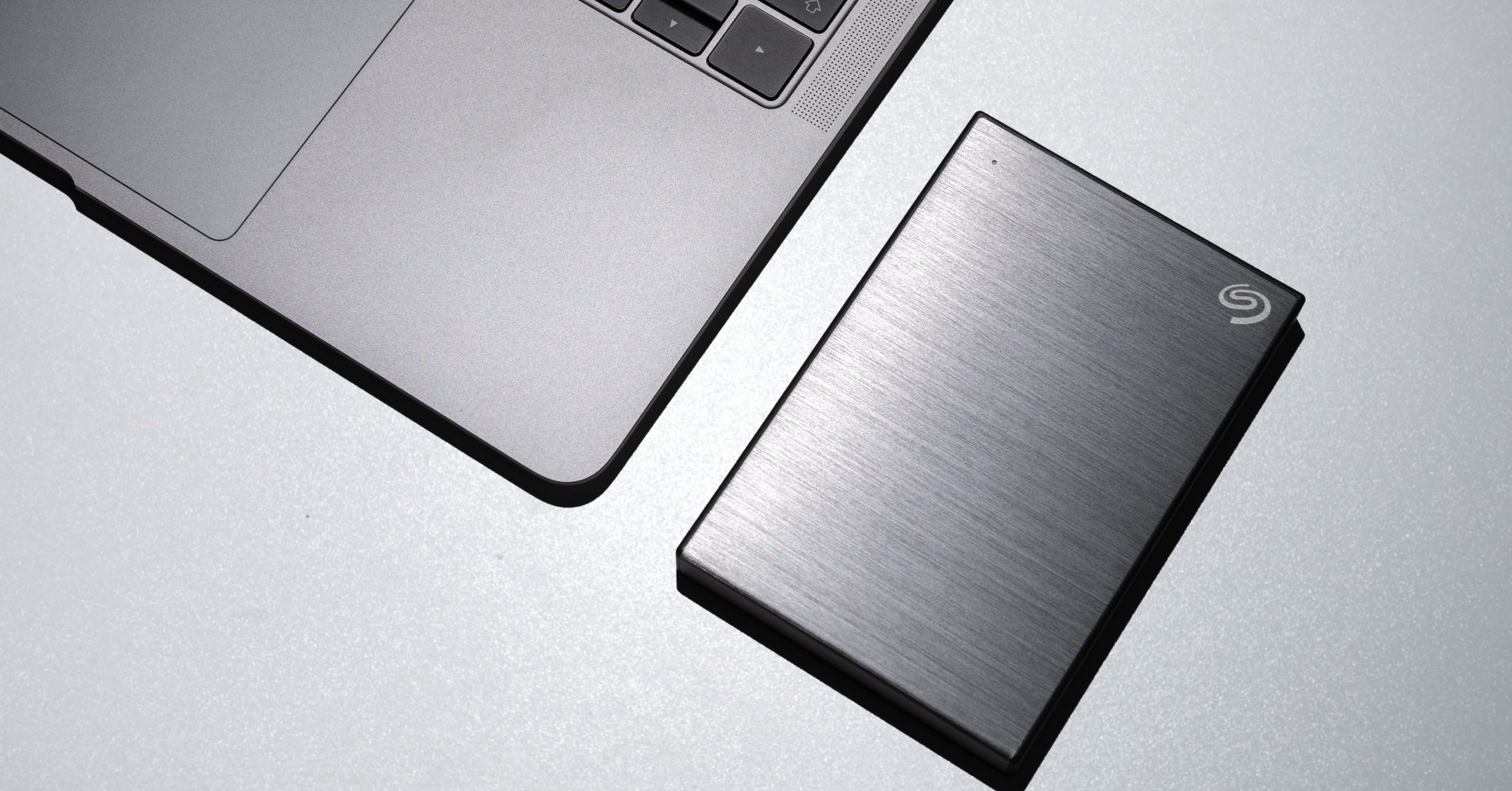Four Things to Consider Before Buying an External Hard Drive

Are you actively backing up your data? If you aren’t, you should be.
There are many ways to back up your information, and which one is right for you depends on the type of information you need to back up, how much space you need, how you plan to use the drive and more.
Some people choose a cloud-based option like GDrive or Dropbox. Others use hardware like flash drives or magnetic tape. (Yes, people still use magnetic tape!)
One of the most popular ways to back up your information is an external hard drive. These units are a great option because they’re portable, reliable, easily available and typically have significant storage capacity for the size and price. There are so many different brands and options, how do you know what’s right for you?
There are quite a few different features you’ll want to consider before buying a new hard drive. So, congratulations on taking the first step toward regularly backing up your data! But before you head out and start shopping, here’s what to look for in an external hard drive.
Storage size
Before you even begin to think about buying a new hard drive, you need to evaluate your storage capacity needs. New hard drives range in capacity from 250 gigabytes to several terabytes (1000GB = 1TB). You don’t want to buy the cheaper 500GB hard drive only to discover you actually have 1TB of data to store.
Take a look at all your documents and media. This includes PDFs, photos, videos, songs and more. You’ll need a hard drive to easily store everything you already have plus a good deal of storage left over for additional documents and media. So tally up the total storage capacity needed for your current data and estimate how much additional data you’ll create while using the new hard drive.
The worst thing you can do is buy a new hard drive without enough storage capacity to save your data, and then some.
Compatibility
These days, computers can have many different combinations of hardware and operating systems. That means hard drive compatibility is something you have to think about before buying a new external hard drive.
When choosing a new hard drive, the most important factor is your operating system. But keep in mind, just because you have an Acer laptop, doesn’t mean an Acer external hard drive will necessarily work with your machine. The drive must also be compatible with your computer’s operating system, whether you’re running Mac, Windows or Linux. Always do research before buying a hard drive—don’t just assume a piece of hardware will automatically work with your OS. Take your time, and read the product specifications and descriptions before you buy to ensure the new hard drive is compatible with what you’re running on your computer.
On the hardware side, all you need to connect your computer and new hard drive is a free USB port. And depending on how many USB peripherals you’re currently using, that may be your biggest challenge!
Portability
Will your hard drive be sitting next to a desktop for much of its life, or will the external hard drive travel frequently with your trusty laptop? This is an important question to consider before buying a new hard drive.
If you plan to use your new hard drive in a desktop application, then hard drive size, weight and probably overall design aren’t important to you. The hard drive will simply keep your computer company while backing up your information, that’s about it.
But if you’re going to be taking your new hard drive on the road, weight may be an issue. You’ll want to make sure the hard drive isn’t so heavy you don’t want to carry it. Laptops, chargers and everything else going with them are enough to lug around, let alone an external hard drive that weighs more than a few ounces.
You’ll also want to consider the design. The flatter and smaller the drive, the easier the drive will be to take with you everywhere you go. Look for thin, streamlined units if you plan to travel with your external hard drive.
Speed
The faster the better, right? Not necessarily. Speed is all about personal preference and convenience. If you find yourself in situations where file transfers need to occur quickly, then the convenience (and extra up-front cost) of a faster external hard drive is worth considering.
The typical hard drive is rated at 5,400 rpm, but there are many faster models on the market. For most people, 5,400 rpm is sufficient, but again, if your lifestyle demands quick downloads, then go for a faster model. They are generally more expensive but worth the extra investment.
Still dragging your feet to buy a new hard drive? Don’t! The sooner you get the right external hard drive purchased and set up, the sooner you’ll protect your data. Fail to do so, and you risk losing your most precious digital possessions.
If you’ve already suffered a hard drive failure, and you haven’t been backing up your information, contact a data recovery specialist to evaluate your hard drive. Data you think is lost forever may not be lost at all. Consult a qualified data recovery specialist to find out what can be recovered. And start backing up regularly!


